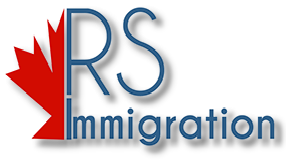Source: Douglas Todd: Ottawa rejecting more and more study-visa applicants | Vermilion Standard | Published on: November 16, 2019 | Last Updated: November 16, 2019 2:42 PM EST
“Immigration officials are turning back two of five people applying to study in Canada, with Africans suffering by far the highest rate of rejection.
With Canada now the world’s fastest-growing destination for international students, the Immigration Department has this year been rejecting 39 per cent of study-visa applications, up from a 28 per cent refusal rate in 2014.
Immigration officials say one in 10 applicants are rebuffed for apparent fraud. Others don’t make the cut because they’re unable to prove they have enough money to pay high tuition fees and rents in Canada. Others present study plans that don’t appear to make sense.
Since 2016, Canada has turned down more than 100,000 study visa applicants a year.”
…
“The rejections are hitting hopefuls from India especially hard, since they have grown into the largest group of foreign students in Canada. Many of India’s 173,000 study-permit holders here hope to eventually obtain permanent resident status so they can get full-time jobs and obtain Canadian citizenship for themselves and family members.
Thirty-seven per cent of would-be international students from India are now being rejected by Canadian officials, causing media outlets such as The Times of India to report recently, “Just as Canada became every Indian student’s hot favourite college destination, rejection rates for study permits soared.”
There were a total of 572,000 international students in Canada at the end of 2018, which makes Canada the world’s fourth biggest destination for global education. Indian nationals make up 30 per cent of foreign students in Canada, followed by China at 24 per cent, and South Korea, France and Vietnam at four per cent each.
On a per capita basis, however, Canada ranks second for foreign students, after Australia. And B.C. has the highest concentration in this country. Total foreign enrolment in Canadian educational institutions has almost doubled since 2014, particularly since the most-sought-after destination, the U.S., has been moderately limiting student and work visas.”
…
“For instance, Kochhar said he’s aware of applicants who have presented visa officers with forged admission-approval letters from “The University of Nova Scotia,” which doesn’t exist. Others purport to have obtained admission letters from Dalhousie University, in which the word “Dalhousie” is misspelled.
Young applicants from African countries are the most hard hit by refusals, according to recent figures from the Immigration Department.
Eighty-six per cent of applicants from Algeria were rejected this year, as were 82 per cent from Cameroon, 81 per cent from Nigeria, 75 per cent from the Democratic Republic of Congo, 70 per cent from Kenya and 62 per cent from Ghana.
Outside of Africa, Pakistani applicants are also being treated with suspicion, with 81 per cent being refused this year. So were 55 per cent of applicants from Vietnam, 48 per cent from Iran and 40 per cent from the Philippines.
Applicants from China, who make up the second largest group of foreign students in Canada, were generally welcomed. Only 14 per cent were rejected by visa officers. There were 143,000 Chinese nationals studying in Canada at the end of 2018, more than 50,000 in B.C.
The rate of rejection this year was also low for would-be students from Brazil (18 per cent), the United States (14 per cent), Germany (12 per cent), France and Taiwan (10 per cent) and South Korea (four per cent).”
For a successful Study Permit or Visitor Visa application to Canada
Contact RS Immigration 778-229-0796
www.rsimmigration.com
